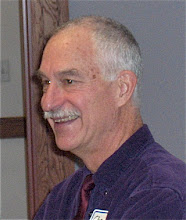How to Fight Racism Right Now
The Racial Justice Task Force of the First Unitarian Universalist Society of Burlington, Vermont, has created this
draft of a document for the many in our community who are asking, “What can I do to fight against the evil of
racism?” Though much of our congregation is white, our shared commitment to social justice leads us to
stand up against the violence and injustice that continue to disproportionately harm people of color. We are honored to follow in the footsteps of those who have fought to bend the long arc of the moral universe towards justice, and saddened and angry that this is a battle that we have not yet won. We hope to make it
easier for others to know how to join in, and welcome your participation.
Join, participate in, and help publicize efforts of Vermont’s first official NAACP Chapter: the Champlain Area
NAACP (contact Mary Brown-Guillory at mguillor@uvm.edufor more information)
Join, participate in, and help publicize efforts of Vermont's BlackLivesMatter chapter. See their facebook page.
Show up when local organizations serving people of color ask for the community to be present for demonstrations, public meetings, and press events.
Contact and offer assistanceto community organizations working with black Vermonters, including the Islamic Center of Vermont, Vermont Interfaith Action (VIA) racial justice actions, Association for Africans Living in Vermont (AALV), and others.
C h e c k o u t the Peace and Justice Center's Events page on their website to learn about upcoming workshops and learning events.
Join the Vermont Racism - Real Talk Facebook group to join an open conversation. Share your process, what you learn, and resources found there back on the FUUSB page (honoring confidentiality and privacy).
Check out the Showing Up for Racial Justice Facebook pageto find ways to get involved.
Rememberthat just as white people are too often privileged and valued over people of color in the dominant culture, white voices can dominate gatherings that include people of color. Be ready to be quiet and listen, to tend to your own discomfort and pain, and let people of color have the space to lead.
Challenge racism when you hear it around you. Though it can be hard to confront peers, friends, colleagues,
and family, when we are silent around racism, we allow it to seem normal. Some people might find it helpful
Do
Join, participate in, and help publicize efforts of Vermont's BlackLivesMatter chapter. See their facebook page.
Show up when local organizations serving people of color ask for the community to be present for demonstrations, public meetings, and press events.
Contact and offer assistanceto community organizations working with black Vermonters, including the Islamic Center of Vermont, Vermont Interfaith Action (VIA) racial justice actions, Association for Africans Living in Vermont (AALV), and others.
C h e c k o u t the Peace and Justice Center's Events page on their website to learn about upcoming workshops and learning events.
Join the Vermont Racism - Real Talk Facebook group to join an open conversation. Share your process, what you learn, and resources found there back on the FUUSB page (honoring confidentiality and privacy).
Check out the Showing Up for Racial Justice Facebook pageto find ways to get involved.
Rememberthat just as white people are too often privileged and valued over people of color in the dominant culture, white voices can dominate gatherings that include people of color. Be ready to be quiet and listen, to tend to your own discomfort and pain, and let people of color have the space to lead.
Say
Resist the temptation to marginalize people of color by referring to Vermont as “such a white state.” While
Vermont may have fewer people of color than other states, racism and its effects are real, and a painful reality
for too many who live here.
● The New Jim Crowby Michelle Alexander
● Between the World and Meby Ta Nehisi-Coates
Websites:
Read and Learn
Books:● The New Jim Crowby Michelle Alexander
● Between the World and Meby Ta Nehisi-Coates
Websites:
-
● Black Lives Matter
-
● Common Dreams
● TruthOut
● TruthDig -
Also see reading lists at:
● Social Justice Training Institute
● Angry Black WomanRequired Reading(blog) - ● Goodreads’ Undoing Racism Reading List
- GiveThese community groups and projects serve people of color (and, in the case of the Peace and Justice Center, address economic justice and environmental issues as well). They accept donations and rely on them to do their good work.
● Vermont Partnership for Fairness and Diversity
● Vermont African American Heritage Trail
● Vermont Vision for a Multicultural Future
● Make Vermont an Inclusive and Equitable Place to Live ● Peace & Justice Center
● Champlain Valley NAACP
● Association of Africans Living in Vermont

